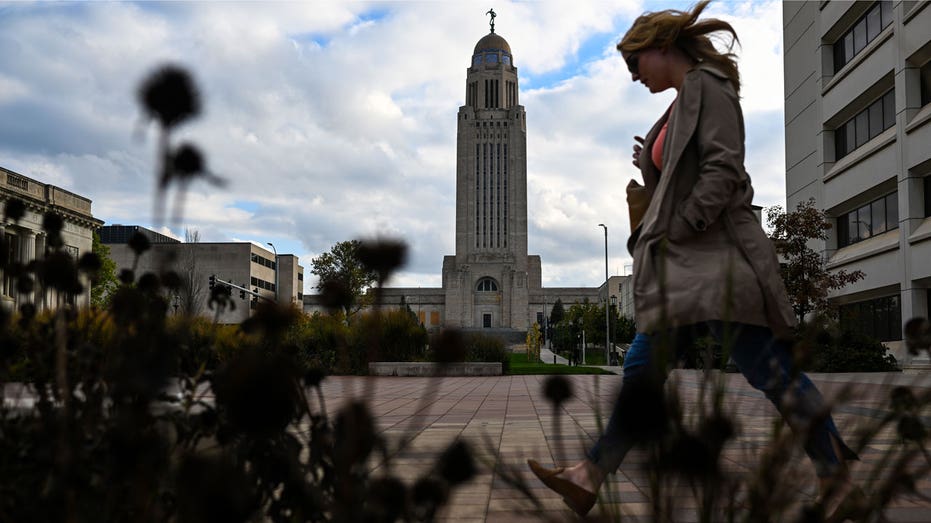Barely six months into his term as Nebraska’s attorney general last year, Mike Hilgers released an opinion questioning the legality of offices of inspector general overseeing the state’s prison system and the child services division of the Department of Health and Human Service — two of the state’s largest and most troubled agencies.
“That same day, those agencies blocked our access to their online case files,” said Julie Rogers, who heads the state ombudsman’s office.
Not only did the agencies block the inspectors general, they blocked her office, even though the ombudsman’s office has a more than 50-year history of oversight of state agencies. And the attorney general’s opinion makes no mention of the office.
NEBRASKA BILL WOULD STOP CORPORATIONS FROM BUYING UP HOUSES
Since then, Rogers said, neither she nor the inspectors general have been able access reports, case files or complaints or been allowed to inspect the state’s prisons.
“Their legal counsels also pretty quickly sent out memos agency-wide to say that employees were not to talk to us.” she said.
That means for the past six months, she and the inspectors general — who report their findings to the Legislature — have been kept in the dark about any complaints on the treatment of prisoners and children under state care, such as juvenile offenders and those in the foster care system.
The Legislature created the office of inspector general of the state’s child welfare system in 2012 to respond to problems with children in the system being injured, self-harming, dying and being exposed to drugs. The inspector general’s office for the prison system was created in 2015 in response to a deadly prison riot, officials’ miscalculation of prison sentences for hundreds of inmates over years and rampant prison overcrowding and staffing shortages.
The agencies they investigate come under the purview of the governor, who appoints their administrators, and several lawmakers have accused the governor’s office of pushing to usurp the Legislature’s oversight of them. Hilgers has denied his office consulted with Gov. Jim Pillen’s office on the opinion. Pillen’s office did not answer questions about whether it advised Hilgers’ office on legislative oversight before the opinion was released.
The struggle between the executive and legislative branches of government is far from a new phenomenon. The federal government is rife with examples, as U.S. presidents have increasingly used executive orders to enact policy on everything from military action to immigration. Congress has also sought to make its mark on what have traditionally been presidential decisions, such as when Senate Majority Leader Mitch McConnell denied President Barack Obama’s pick for the U.S. Supreme Court by refusing to even meet with then-federal Judge Merrick Garland, now the U.S. Attorney General.
A number of states have also seen their share of power struggles among their branches. In Kentucky, the GOP-led Legislature has introduced a number of bills to wrest power from the Democratic governor. Those include a bill that would allow the body to call itself into special session and another that would have it appoint the members of the state Board of Education. Both are currently functions of the governor.
In Wisconsin, Democratic Gov. Tony Evers sued the Republican-controlled Legislature last year, arguing that it is obstructing basic government functions, including refusing to sign off on approved pay raises for university employees and blocking state conservation programs. In turn, Evers earlier this year went around Republican lawmakers who had blocked a deal to complete the largest land conservation purchase in Wisconsin history by securing federal dollars to do it.
The conflict has also likely been exacerbated by the COVID-19 pandemic, when governors, lawmakers and agencies saw conflicts over business and school shutdowns and mandatory masking. Over 300 bills in at least 47 states and two U.S. territories were introduced in 2021 alone aimed at the legislature’s ability to oversee executive branch actions, according to the National Conference of State Legislatures.
“It is important to note that a tug-of-war between the branches is a conflict as old as our democracy, and our system was designed in such a way that this conflict is inherent and expected,” NCSL spokesperson Mick Bullock said. “Legislative oversight serves as a fundamental check and balance within our democratic system.”
Hilgers’ opinion came as a shock to many Nebraska lawmakers, some of whom had a hand in creating the agency oversight laws. Most of the lawmakers had also served with Hilgers a year earlier, when he was speaker of the Legislature before being elected attorney general.
The agencies’ refusal to cooperate with the Legislature’s oversight office was met with fury from Democratic lawmakers in the officially nonpartisan Nebraska Legislature who noted that an attorney general’s opinion does not carry the weight of law.
“So, these agencies have decided they’re not going to follow established state law. It’s breathtaking,” said Lincoln Sen. Danielle Conrad, an attorney and the former director of the state chapter of the American Civil Liberties Union. “I’m concerned about the slippery slope where we sit down and we let other branches of government tell us when they’re going to follow the law that we pass on behalf of the people. That’s a dangerous precedent.”
In reaction to the standoff, Conrad and others have introduced several bills this session designed to reinforce the Legislature’s role. They range from a proposed constitutional amendment that would have the voters decide on legislative oversight to bills that would have lawmakers — instead of the governor — appoint some agency directors.
Even Republican lawmakers and allies of the Republican governor concede that the Legislature has to act to retain its oversight power. Speaker of the Legislature Sen. John Arch has introduced a resolution for the body’s executive board to create a committee to look into legislative oversight functions. Sen. Ray Aguilar, chair of the Executive Committee, said he expected the committee to advance some of the Democratic lawmakers’ proposals on oversight to the full Legislature this session. None had advanced by Monday.
In the meantime, the governor’s office and legislative leaders have agreed to memorandum of understanding that will give the inspectors general access to agency information and facilities in the coming days, Rogers said.
























